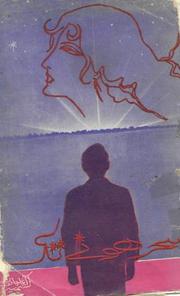Check nearby libraries
Buy this book

The autobiography of one of India's most well-known screenplay, dialogue and story (movie) writers, who entertained six generations of moviegoers with almost 60 movies written in Urdu (Hindustani). It spans his childhood in Lucknow, India, details how he ran away from home to act in a movie, Shan-e-Subha, being shot in Rangoon, Burma, offered the role of hero after a soccer match that he was playing. A confused childhood, lively details of his struggle to reach the top which he did, his love affairs and romances, all very candid in this book that reads like a visual commentary delivered in a movie. Copies of the book in Urdu and Hindu are with his son, Zuhair Kashmeri in Niagara on the Lake, Ontario, Canada, who is translating them into English (kash@mediaminders.info). He and his brother Sarwar of Reading, Vermont, USA, hold the copyright to both the Urdu and Hindi books. In English he also went by Agha Jani Kashmeri and also Kashmiri. He retired in Toronto, Canada, and died on March 27, 1998. He is buried in Toronto with his wife, Khursheed Kashmeri (nee Kazi). He wanted the following ashar (couplet) to be inscribed on his tombstone in Toronto, which I did: "Zamana bade shauk se sun raha tha / Hamee so gaye dastaan kehte, kehte." (The world kept listening with rapt attention / It is I who feel asleep before the final mention."
Check nearby libraries
Buy this book

Subjects
Bollywood, Lucknow, Urdu, ghazal, screenplan, script, dialogue, movies, acting, writing, poetry, literature, Wazirgunj, Wazir Gunj, Tilisma-e-Hoshruba, Screenwriters, BiographyPeople
Joy Mukherjee, Shammi Kapoor, Sunil Dutt, Nargis, Nimmi, K.A. Abbas, Kamal Amrohi, Arzoo Lucknowi, ghalib, aatish, josh malihabadi, mir, mir taqimir, mir anis, wajidali Shah, Asif ud-daula, saira banu, dilip kumar, sadhna, r.k. nayyar, shashadar mukherjee, s. mukherjee, subodh mukherjeeTimes
1908-1965| Edition | Availability |
|---|---|
| 1 |
aaaa
|
Book Details
First Sentence
"In the Roman script: "Ek kitaab har shaksh kee zindagi may hotee hai lekin os kitab ko sine ki gehraiyon se bahar nikal lana har shakhs ka kam naheen hai." (Translation by Zuhair Kashmeri: "There is a book buried within the life of every human, but to extract that narrative from the depth of one's soul is not everyday fare.")"
Edition Notes
The book was also published in Hindi, using the Devnagri script. In Hindi, the title was Subha Hone Tak. Although the bulk of the book is a transliteration, it utilizes several Hindi words, which in some ways act as obstacles to the lilting rhythm of the original Urdu text. (Zuhair Kashmeri)
Classifications
The Physical Object
Edition Identifiers
Work Identifiers
Source records
Work Description
An autobiography that talks to you. It recounts the life of one of India's foremost screenplay, story and dialogue writers who died in 1998, after entertaining six generations with his movies, his wit and his poetry. The book recounts his turbulent upbrining in the highly cultured city of Lucknow in the then kingdom of Oudh (Oude), which has produced some of the finest writers and potets and intellectuals of the era. A truthful and frank account, it starts off by describing his neighbourhood of Wazirgunj (also Wazir Gunj) inLucknow, scores of families who lived there, his close friends, neighbourhood poetry sessions, some very very unusual people with powers that seem almost magical, and then moves on to how he ran away to join the movies (in those days an industry of ill repute among decent folk), shot his film in Rangoon, acted in several films in Calcutta, before moving to Bombay (now Mumbai) and writing his first film for Hemansu Roy of Bombay Talkies, a film called "Vachan," a vow or promise. It explores a depression he lived with all his life, in the background as he moves from one stage of his life to another, his struggles, eventual success, downfall, success and ends in the 1970s. The book was written in his native tongue, Urdu, and also published in the Devnagiri script in Hindi. It is currently being translated into English by his son, Zuhair Kashmeri, of Niagara-on-the-Lake, Ontario, Canada, and is the subject of a documentary being produced for OMNI-TV of Toronto, Canada, set for release in late 2011.
Community Reviews (0)
| September 20, 2020 | Edited by MARC Bot | import existing book |
| February 6, 2012 | Edited by Rashid Ashraf | Added new cover |
| December 3, 2010 | Edited by 69.157.106.66 | Added new cover |
| August 9, 2010 | Edited by Zuhair Kashmeri | Edited without comment. |
| October 27, 2009 | Created by WorkBot | add works page |









